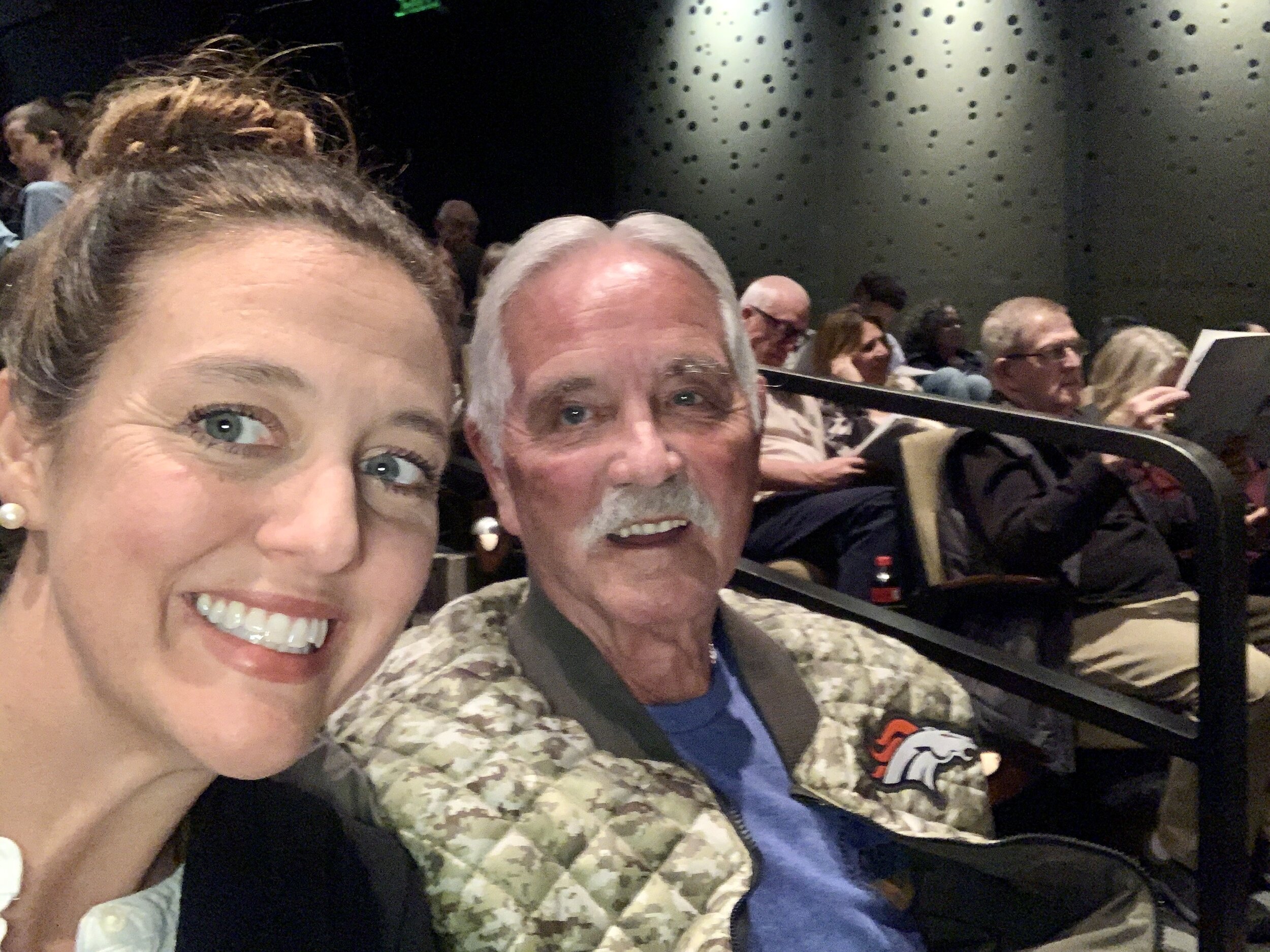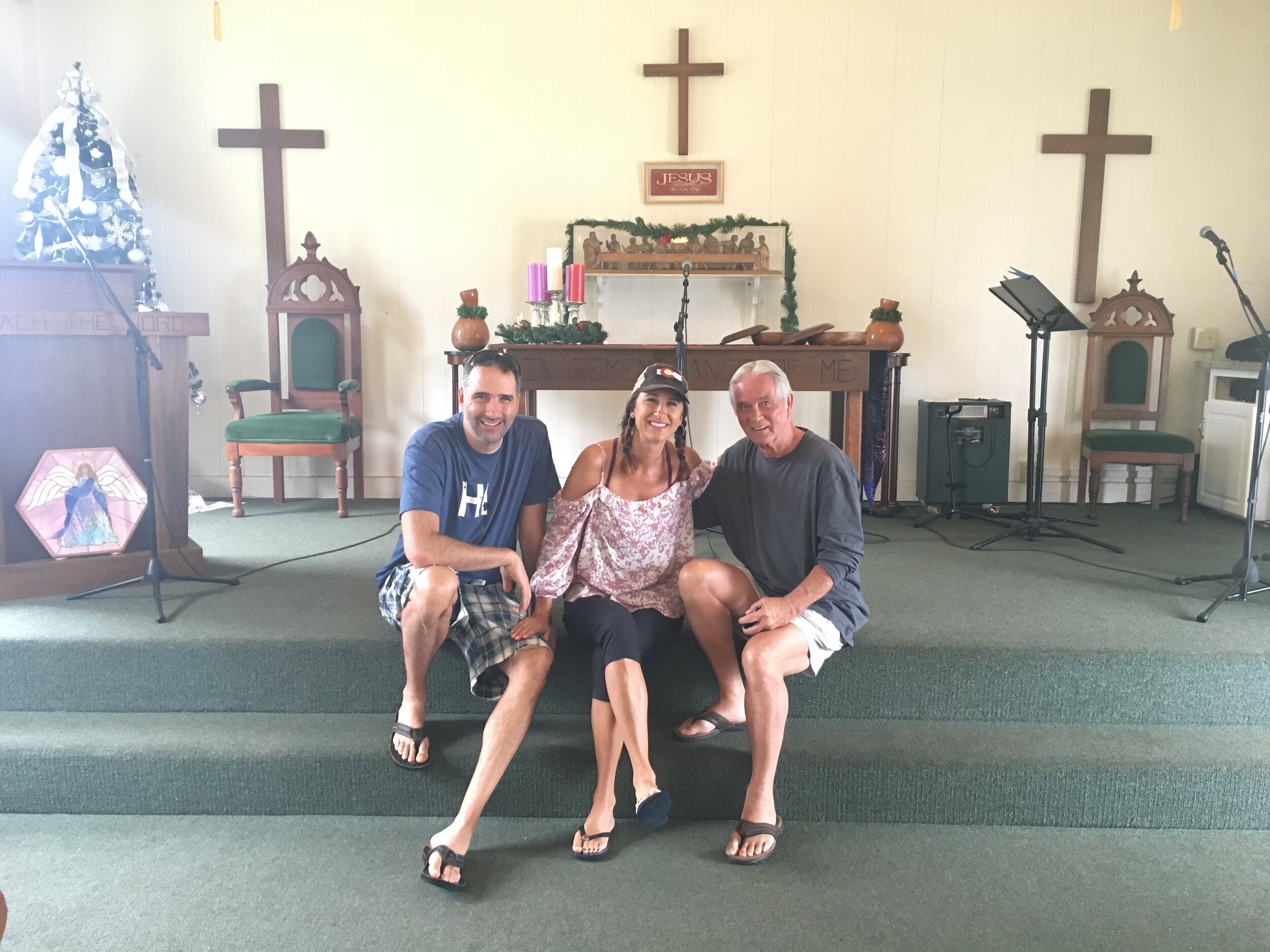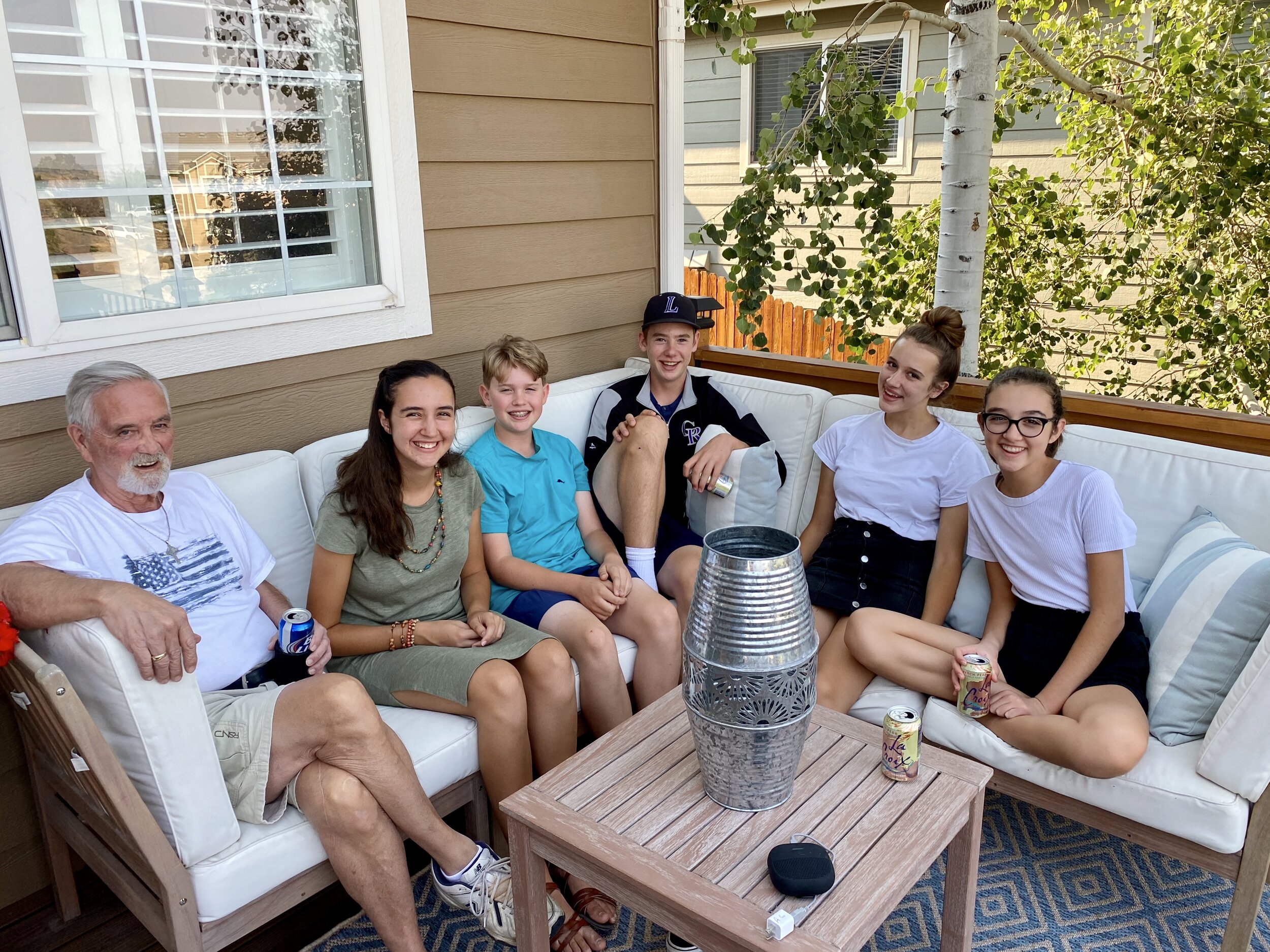A Covid-Related Death in our Family: And Not Just Ours, But 245,000 Others and Counting
Covid came home to our family 18 days ago. That’s the day we learned my step-father-in-law had Covid and it’s also the day he passed away. It’s the day we pulled our kids abruptly out of school and extra-curricular activities and began our own 14-day quarantine. It’s the day that Covid went from seeming very global and out there, to very personal, right in here, right at home.
“Step-father-in-law” might seem like a distant relative, but Steve was a part of our everyday lives. He was there when my first baby was born 17 years ago, he visited us several times overseas in both Asia and Europe, and we’ve seen him two or three times every week over the last five years in Colorado. He was undoubtedly our most faithful church attendee. And it wasn’t unusual for him to show up on our doorstep with a 12-pack of tacos for lunch.
“Grumpy” was Steve’s grandpa moniker, but it was always said with a smile because nothing was further from the truth. Every Sunday he walked with a shuffle into church and every Sunday he asked me, “Where are my girls?” I’d point out my daughters in various places across the room and he’d go find each one and say, “Well hi, honey,” and give them a smile and a hug.
You’d think that a stepfather might grow distant after the death of his wife, my husband’s mom, which happened almost eight years ago. But for our family it was the opposite. He hung on to us and we hung on to him. He was at every birthday, every Christmas, every school play, every just-because family gathering. I thanked the Lord more than once for Steve’s active interest in my girls’ lives. My own dad was much more withdrawn and never really knew them. Steve was so generous, so thoughtful, so invested in our lives.
When my husband took him to the doctor just six days before he passed away, we expected a fairly routine report, probably some an update on his dementia, but nothing too upsetting. He was still living at home alone and getting along pretty well. We had seen some obvious needs for him to get extra help that week and we wanted to know more about his condition. They were going to go get Mexican food for dinner (Steve’s staple!) right after the appointment. But a late decision was made for the hospital to keep him overnight. What seemed like an abundance of caution on Friday quickly felt surreal and out of control by Saturday.
Over the next six days we visited frequently and watched in horror as he quickly lost his grasp on life. There were far more questions than answers. His care felt to us disjointed, disorganized, and without real urgency. Even in the days after his death we and other family members tried hard to understand what exactly happened. As far as we can tell, it wasn’t until the night before he passed that a Covid test was administered. One doctor said dehydration was his demise. And while his Covid test was positive, another doctor said it wasn’t Covid that killed him, although, wait, yes maybe it was, it’s hard to say because we’re learning more about Covid everyday, he said. We know his dementia played a role. His autopsy was inconclusive and downright unsatisfying.
The blessing and the cursing was that we didn’t know he had Covid the whole six days we visited him. We sat together in his room, masked of course, using ample hand sanitizer of course, and—even though he was unconscious—we chatted to him, played music, prayed, and even behaved a bit silly at times, as we are wont to do. That baby girl, whose birth he was there for, visited the hospital alone to sit with him all morning about 48 hours before he left this earth. He was not alone, but surrounded by many, as he drew near to the end.
The flip side of that, as you have already deduced, is that we and many other family members were exposed to Covid for days on end. The day we learned the result of his first and last Covid test was also the day he died and we all had to immediately retreat. Out of all the family members who spent time with him, a quarter tested positive in the week after that. By God’s grace, no one took seriously ill. My husband, Steve’s stepson and pastor, is now planning an online memorial service—a first for us—like so many other heavy things in 2020.
We five Oshmans gratefully tested negative and we’ve inched out into the world just a little bit, mostly to allow our girls to attend school and practices that aren’t yet canceled. Those days seem numbered, though, as we hear reports everyday that Colorado will reach its ICU capacity very soon. Our state is not well.
The thing about covid coming home is that you wonder where your loved one got it. You wonder if they could have avoided it, gotten better treatment and beaten it. Steve was often out and about. He loved long drives to his favorite old cowboy bars in the mountains, he went to the same Mexican place all the time, he even ventured out to a bookstore and bought a copy of my book days before he went to the doctor. So we wonder, could he—could all of us—have done something differently?
I won’t draw conclusions that his doctors didn’t. They never decreed that Steve succumbed specifically to Covid and so neither will I. But it was present. And he declined so quickly. And just before that he was headed out to dinner with my husband. His passing was abrupt, shocking, and—can I be honest?—maddening. I don’t know. How does a relatively healthy 75 year old man walk of his own accord into one of the best hospitals in the world, joke with intake nurses on Friday, and fall dead by Thursday?
This is when theology and anthropology really matter. What do I believe about God? What do I believe about people? I believe God is in heaven and he does whatever he pleases (Psalm 115:3). I believe God created all things through himself and for himself (Colossians 1:16). I believe God numbers our days before we are even born (Psalm 139:16, Job 14:5). I believe God alone is the giver of life and breath and everything (Acts 17:25).
I believe man is finite and fallible. We come from dust and it’s God’s breath in our lungs (Genesis 2:7). Our lives are brief, like grass that withers (Psalm 103:15). I believe our thoughts are not like God’s thoughts, his ways are higher (Isaiah 55:8-9). I believe this life makes us weary and heavy-laden and we need a Savior to help us, to rescue us (Matthew 11:28-30).
And I know, beyond a shadow of a doubt, that our God is good and trustworthy. The cross of Jesus Christ tells us so. While we were yet sinners—enemies of our Maker and Savior, following the world, giving in to our own selfish desires—because of God’s great love and rich mercy, Jesus died for us. He took our sin and in return gave us his righteousness. It’s by grace we are saved (Ephesians 2:1-10). There’s no question, he is good. He lived, died, and rose again for you and me who believe.
But this is hard. We’ll attend outdoor church this morning and he won’t be there. After about 52 Sundays multiplied by five years of seeing Steve, that’s hard.
We rehearse the truth around the table each day in our home, centering us when grief overwhelms and anger rises. Our God is good and he is, even now, reigning from heaven, on his throne. He sees us. He knows what it is to endure anguish and agony. He is not far off, unfamiliar with suffering.
We are “convinced that neither death nor life, neither angels nor demons, neither the present nor the future, nor any powers, neither height nor depth, nor anything else in all creation, will be able to separate us from the love of God that is in Christ Jesus our Lord” (Romans 8:38-39). We know we are safe, secure, held in his righteous right hand.
We may not know what he’s doing, but we know who he is. And because of that great, unshakable truth, we know everything is going to be all right. We so look forward to heaven, when death will be no more.
Until then, though, in the midst of a global sickness that has come right in and brought death and pain—not just to our family but, at present count, to 245,000 American families—we look at the world with a renewed dose of reality. We are sobered that this virus is real and lethal to the most vulnerable. It may not be exactly what killed Steve, but it played a role. His was a so-called Covid-related death. How then, we ask one another across the kitchen counter, should we ensure that we do not cause anyone else to endure a Covid-related sickness or death?
God forbid—truly Lord, please forbid it—that we unknowingly and accidentally carry this to someone else’s Steve.
We know, like you, that there’s so much that we don’t know. For nine months leaders and experts across our nation and whole world have done their darnedest to navigate this thing, and yet it rages. More than anything we’ve learned we humans are not omniscient, omnipotent, able to even plan tomorrow.
But we do know that maybe masks help. Maybe staying home helps. Maybe not gathering in small, enclosed spaces helps. We know that there are some things—as debated or despised as they may be—do help. And so, to honor Steve and to prevent someone else’s “Grumpy” from falling ill, we’re doing all those things.
We need the vulnerable in our lives. We need grandmas and grandpas with dementia. We need differently-abled boys and girls. We need men and women who cannot hear or cannot speak or cannot walk or cannot live at the pace we deem normal and somehow more valuable. We need their wisdom, their perspective, their experience. We need their beauty, their strength, their hard-fought joy. We need their faith, their view of God, their understanding of creation. We need Steve and all 1,310,000 souls who have perished a Covid-related death around the world. With each one we have lost something, someone eternally irreplaceable.
The vulnerable lives in our midst not only bear the invaluable image of the God who made them, but that’s just it—it’s God who made them. Their lives are not their own. Their lives are not ours. Their lives belong to God in heaven. Let’s live like it.
Photos: Me and Steve at Abby’s spring musical (just days before lockdown), Steve and his step-kids at the church where he married their mom in Maui, and Steve and some of his grandkids, including my girls.


